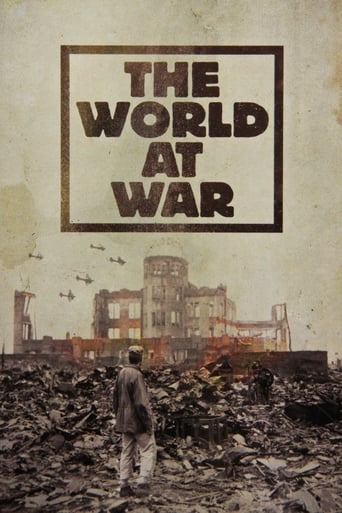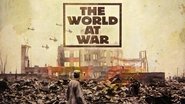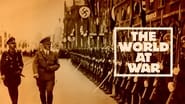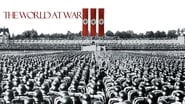stephen-88897
I first remember watching "The World at War"when i was in my late teens and it hit me like a ton of bricks.At the time i had not seen a documentary series quite like it.....it was in my view,and i still believe this today,the most powerful,well written and engrossing documentary series ever made.Anyone who has not watched it must do so.
hmoika
I remember watching this with my parents when it was first aired in the U.S. It has certainly stood the test of time.Everything about it is absolutely top flight. The researchers are really to be commended above all others associated with this work.When it was released on VHS. I bought up the set; and when it was released on DVD, I replaced my VHS collection; with one exception: what seems inexplicable to me is what was left out of the DVD version of the episode "Genocide." This is the ONLY episode where Laurence Olivier comes in front of the camera, and issues a warning concerning the graphic content of the episode. He also warns all of us never to forget. As he says, "This happened in our time...."My VHS copy has this intro. But the DVD does not. Inexplicable.Needles to say, I saved the VHS copy, and watch it from time to time.
grendelkhan
I just finished viewing the original episodes of the series and find I have rarely been so impressed with a documentary about war. This is not a glorification of battles between generals, or a "war is hell" account of atrocities. It is a record of images, testimonies, documents, and legacies of a war that engulfed the world. The series sought to cover all sides of the conflict, on the battlefield, on the homefront, the background behind it, and the aftermath of it. It doesn't sugarcoat atrocities yet it never lets the events devolve into simplistic detail. It is a sincere attempt to cover the history of the world, while it conducted war.The series stars with the human cost of the war, with images of a village that was decimated and left vacant, as a reminder of the horrors of the war. That becomes a common theme throughout; not juts the fighting and dying of soldiers, but the suffering of civilians and the toll upon a community, both the aggressor and the victim.The series was done at a time when many participants were still alive, and greatly benefits from firsthand accounts, from people who worked with the decisionmakers at the top, to grunts on the battlefield, to those caught in the fighting due to geography. We see the famous, the infamous, and the ordinary. It's these personal accounts that really bring the human side of war into focus.The series is not a complete encapsulation of the battles of the war, as it chooses key military campaigns and battles that were most important, then uses the rest of the episodes to look into life on both sides; before, during, and after the war. It looks at the political and social life in the Allied and Axis countries. It focuses on the horror of the Holocaust, the atrocities committed during the war, and the judgments levied afterward. It looks at the politics of the war, the role of industry, the importance of food and raw materials, the sacrifices at home, and injustices done in the name of expediency. It doesn't shy away from calling to light the negative aspects of Allied efforts, such as firebombing civilians, revocation of civil rights, diplomatic pacts that would cause trouble later, etc.. It also attempts to present a picture of the Axis populations as people, not just the enemy.Unlike most documentaries you see these days, it is not jazzed up with graphics (there are some, but they are minimal), computer simulations, and other tricks to attract attention. It does it with actual footage and with eyewitness accounts. Narration is kept to key background and images are allowed to speak for themselves. It is not for the faint of heart, as we see images of dead bodies, horrible wounds, massive destruction. The stories are told on the faces of the living and the frozen images of the dead.If you have ever been curious about World War II, or the history of that era, this is the one documentary series you should view, above all others. It presents history, with all of its complexity, rather than just dates, names and summaries. The DVD set is filled with additional documentaries, about the creation of the series and the research that went into it, greater detail on key aspects, such as the Holocaust, life under a dictatorship, etc... It is a tremendous value.




